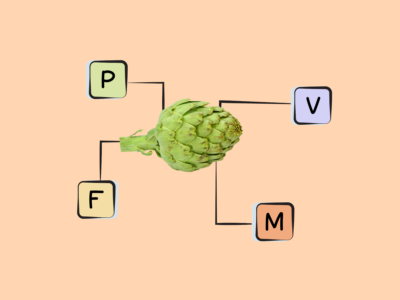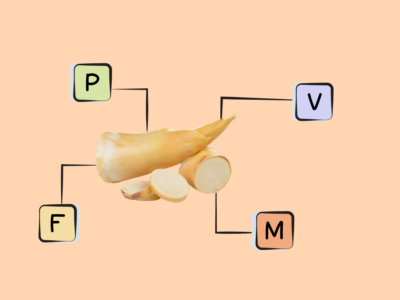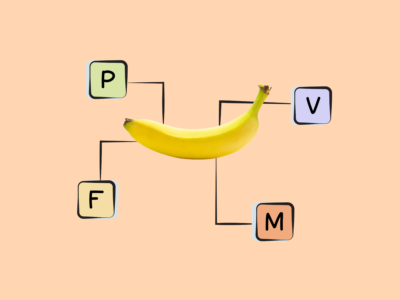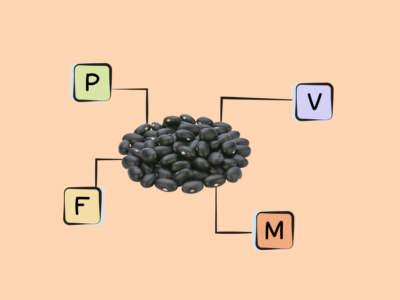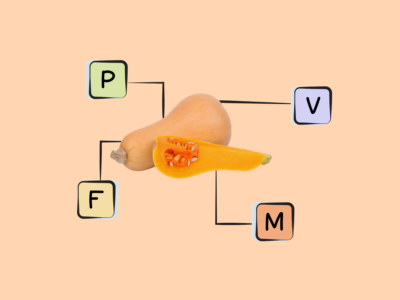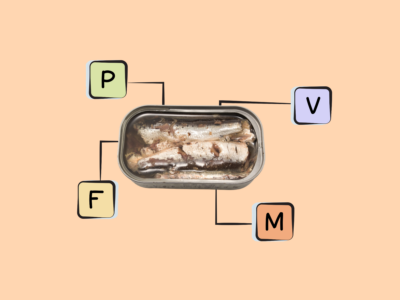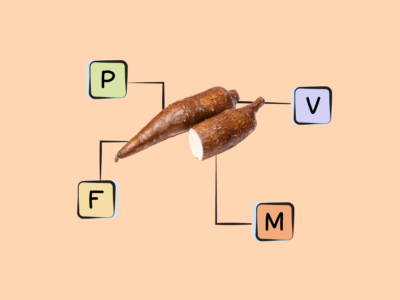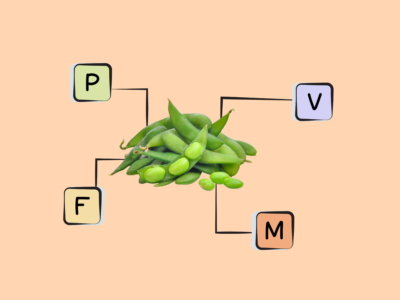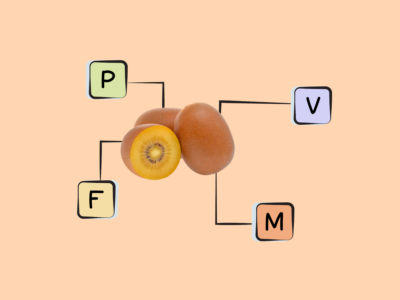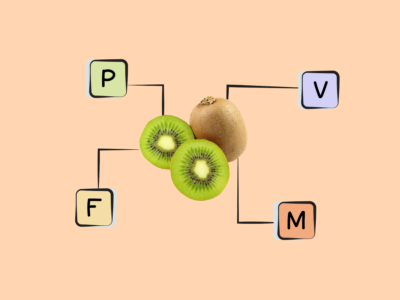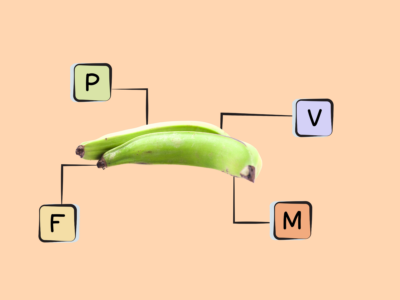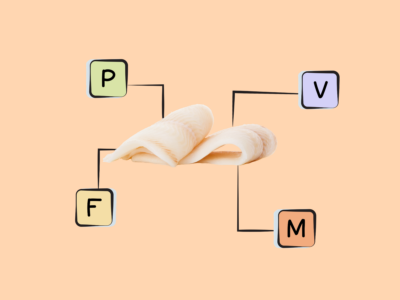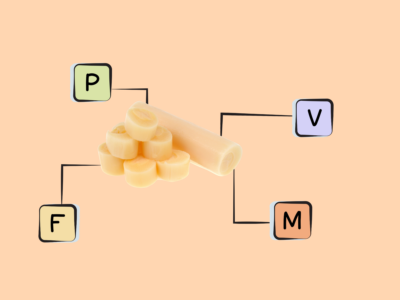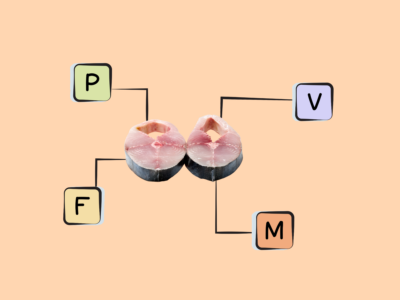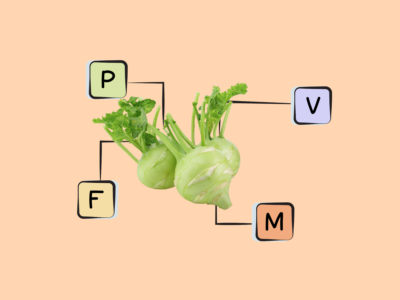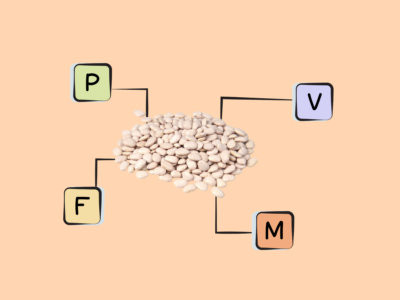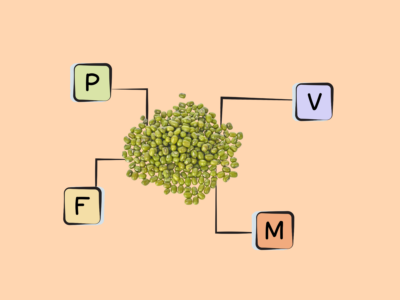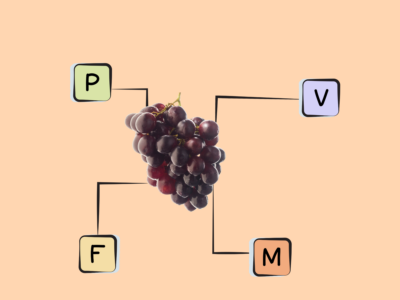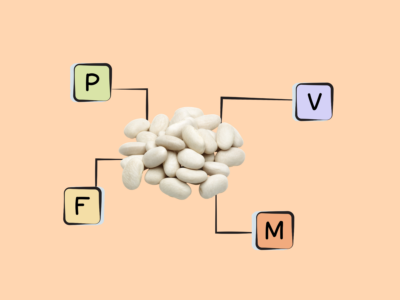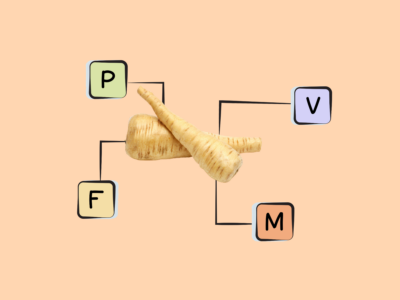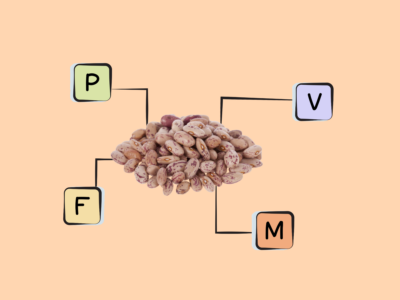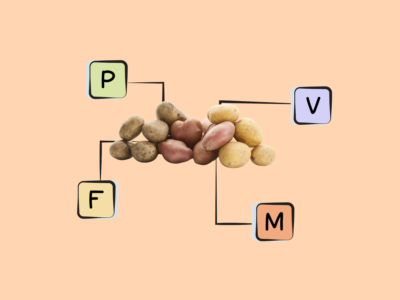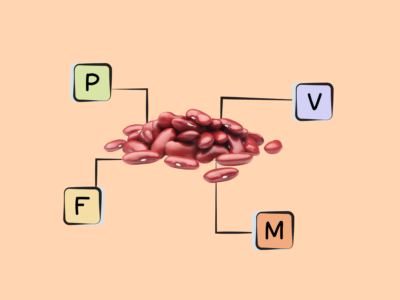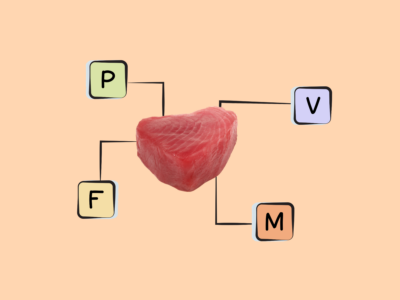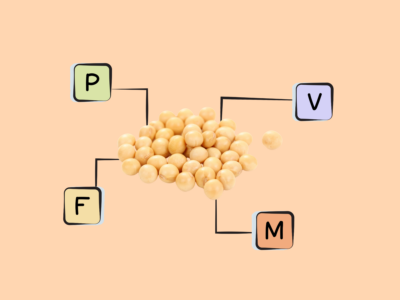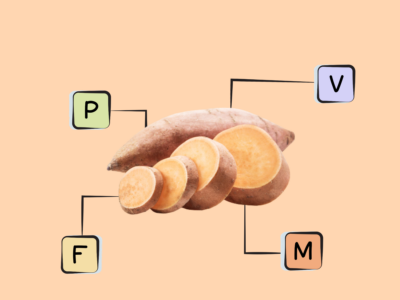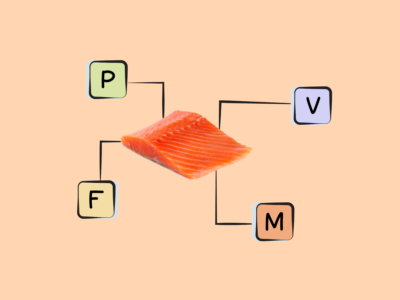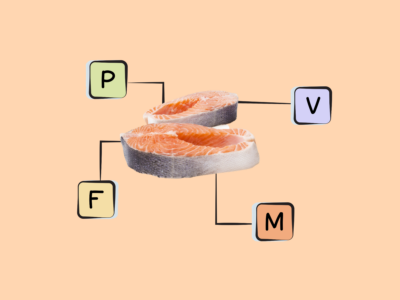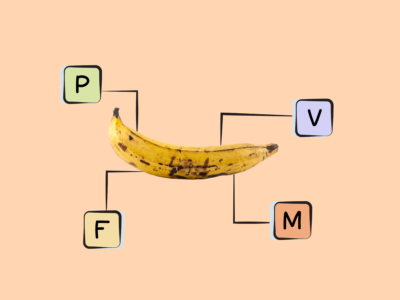Key Takeaways (expand)
- Potassium is an essential mineral that’s needed for every living cell to function.
- Potassium serves as an electrolyte, helping regulate the body’s fluid balance, nerve function, muscle function, blood pH, and neurotransmission.
- The concentration differences between potassium and sodium inside and outside of cells, respectively, is called the membrane potential,and creates a gradient with an electrical charge.
- Through its role in the membrane potential, potassium helps control a number of life-sustaining processes including heart function, muscle contraction, and the transmission of nerve impulses.
- Potassium levels also influence a variety of other biochemical processes in the body, including vascular tone, hormone secretion, gastrointestinal motility, blood pressure control, glucose metabolism, insulin metabolism, and renal concentrating ability.
- Potassium serves as a cofactor for some important enzymes, including pyruvate kinase (an enzyme involved in carbohydrate metabolism).
- The body must keep blood potassium levels within a very narrow range in order to keep functioning properly.
- The dietary ratio between potassium and sodium appears to influence the risk of a number of chronic diseases, including heart disease, kidney disease, and osteoporosis; in fact, many health problems ascribed to excess sodium may actually occur due to a too-high ratio with potassium!
- Higher potassium intake has been linked to lower risk of stroke, likely due to its well-established influence on blood pressure.
- Although potassium doesn’t seem to strongly affect heart disease risk, some research suggests it could help prevent vascular calcification (the buildup of calcium within arteries).
- Potassium may help protect against kidney stones, due to decreasing urinary calcium excretion.
- Some research suggests potassium could help protect against osteoporosis, possibly by decreasing bone resorption and increasing bone formation; however, the evidence isn’t totally consistent, and more research is needed.
- When the kidneys can’t properly eliminate potassium in response to intake, it can lead to hyperkalemia—a potentially life-threatening buildup of potassium in the blood.
- Insufficient potassium intake is widespread, with fewer than 5% of adults in the US exceeding the adequate intake level for this nutrient.
- Long-term potassium insufficiency may increase the risk of kidney stones, high blood pressure, stroke, and potentially osteoporosis—especially when sodium intake is also high.
- True potassium deficient is rare, due to the kidneys’ ability to adjust potassium secretion or retention based on dietary intake; however, some medical conditions can cause low potassium levels in the blood, leading to altered regulation of membrane potential and cellular metabolism.
- Good sources of potassium include vegetables (especially leafy green and cruciferous vegetables), fruit (especially melons, bananas, apricots, plums, and orange), potatoes, sweet potatoes, squash, avocados, mushrooms, legumes, milk, and yogurt.
Table of Contents[Hide][Show]
Potassium is the third most abundant mineral in the human body, and is present in all plant and animal tissues; in fact, it’s necessary for every living cell to function. It was first isolated in 1807 by the English chemist Sir Humphry Davy (who also discovered sodium, calcium, magnesium, strontium, and barium!), when he electrolyzed the element from the ashes of plants, or potash (which is also where potassium got its name!). Intriguingly, a small fraction of potassium atoms (about 0.012%) in the form of potassium-40 are radioactive, and even led to the development of the “banana equivalent dose” (BED)—an informal measurement of ionizing radiation exposure, used to illustrate how radioactive something is in comparison to one banana. (For example, a single dental X-ray produces as much radiation as about 50 bananas!) However, the amounts of radioactive potassium we ingest through food aren’t enough to cause harm to our bodies; in fact, we’re already a little radioactive due to the potassium all living creatures naturally contain.
Importantly, this nutrient functions as an electrolyte—a class of minerals that dissociate into charged particles (called ions) when dissolved in solution, making them capable of conducting electricity. On the whole, electrolytes help regulate fluid balance within the body, regulate nerve and muscle function (including the heart!), maintain a normal blood pH, and transmit nerve signals!
Good sources of potassium include leafy green vegetables, cruciferous vegetables, melons (such as cantaloupe), bananas, apricots, plums, prunes, oranges (and orange juice), potatoes, sweet potatoes, squash, avocados, mushrooms, and legumes (especially lentils, kidney beans, white beans, and soybeans). Many nuts and seeds also have a high potassium content, including pistachios, almonds, hazelnuts, Brazil nuts, and even acorns! And, dairy products—particularly low-fat dairy like milk and yogurt—have a relatively high concentration of potassium.
Ditch Diets. Embrace Nutrients. Start with this FREE Guide.
Sign up for the free Nutrivore Newsletter, your weekly, science-backed guide to improving health through nutrient-rich foods — without dieting harder —and get the Beginner’s Guide to Nutrivore delivered straight to your inbox!

what are The Biological Roles of Potassium?
Potassium is the main positively charged ion within cells, while sodium is the main positively charged ion outside of cells. The concentration differences between these two minerals is called the membrane potential, and it creates a gradient with an electrical charge that directs the flow of ions (with positively charged ions moving towards the negatively charged side of the membrane, and negatively charged ions moving towards the positively charged side of the membrane). The membrane potential is maintained by ion pumps located within the cell membrane, which use ATP to pump sodium out in exchange for potassium—ultimately allowing for the control of muscle contraction, heart function, and the transmission of nerve impulses. In fact, because it plays such an important role in sustaining life, the body dedicates an enormous amount of energy to regulating the membrane potential: the activity of ion pumps accounts for about 20-40% of our total resting energy expenditure each day!
As a result of its role in membrane potential, potassium levels influence a wide variety of biochemical processes in the body—including vascular tone, hormone secretion, gastrointestinal motility, blood pressure control, acid-base homeostasis, glucose metabolism, insulin metabolism, renal concentrating ability, electrolyte balance, fluid balance, and the action of mineralocorticoids (steroid hormones that help maintain the body’s salt balance).
On top of that, potassium serves as a cofactor for some important enzymes. For example, the enzyme Na⁺/K⁺-ATPase requires potassium (along with sodium) in order to be activated. Potassium is also needed for pyruvate kinase, an enzyme involved in carbohydrate metabolism.
In order for the body to keep functioning properly, potassium concentrations must be kept within a very narrow range in the blood, inside of cells (intracellular), and outside of cells (extracellular). Four basic mechanisms help regulate potassium levels in the blood: a reactive negative-feedback system (where the kidneys secrete potassium in response to a rise in plasma potassium), a reactive feed-forward system (in which the kidneys secrete potassium in response to potassium ingestion, before plasma levels have even risen—likely due to potassium receptors in gut cells detecting the presence of potassium), the predictive circadian system (where the kidneys secrete potassium during typical mealtime hours—whether or not potassium has actually been consumed!), and the ion transport system (where potassium is moved across the cell membrane, either actively or passively).
Everything You Need to Jump into Nutrivore TODAY!
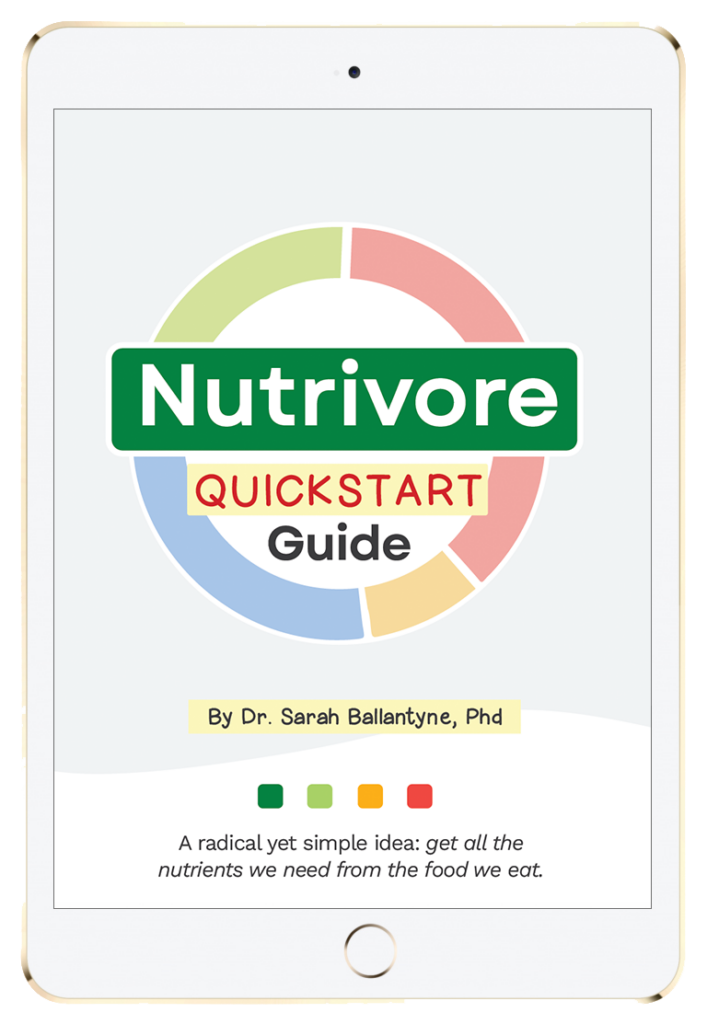
Nutrivore Quickstart Guide
The Nutrivore Quickstart Guide e-book explains why and how to eat a Nutrivore diet, introduces the Nutrivore Score, gives a comprehensive tour of the full range of essential and important nutrients!
Plus, you’ll find the Top 100 Nutrivore Score Foods, analysis of food groups, practical tips to increase the nutrient density of your diet, and look-up tables for the Nutrivore Score of over 700 foods.
Buy now for instant digital access.
how dose Potassium affect Health and Disease?
Potassium has a well-established ability to reduce blood pressure, which may explain its protective effect against stroke. Some research also suggests potassium could help prevent vascular calcification, kidney stones, and bone loss—though for the latter, the evidence is mostly experimental. Importantly, potassium’s dietary ratio with sodium plays a big role in disease risk, with low intakes relative to sodium apparently increasing the risk of kidney disease, stroke, and osteoporosis.
Many of dietary potassium’s health effects depend on its ratio with sodium intake. Scientists estimate that prior to the agricultural revolution, potassium intake was about seven times higher than sodium intake, whereas modern Westernized diets contain about three times less potassium than sodium! This significantly altered ratio is believed to contribute to a number of chronic diseases affecting the cardiovascular system, skeletal health, kidney function, and more.
Potassium and Cardiovascular Disease
For example, in observational studies, higher potassium intake has been linked to lower risk of stroke. Several meta-analyses have shown that people who consume more potassium have a significantly lower risk of stroke than those with lower potassium intakes (about a 13 – 30% reduced risk for potassium intakes around 3,500 mg daily or higher). Similarly, observational studies have shown that for every 1-unit increase in the ratio of dietary sodium to potassium, the risk of stroke rises by 22%—emphasizing the importance of keeping these nutrients in proper balance (and suggesting it’s not necessarily high sodium that’s harmful for cardiovascular health, but concurrent low potassium!).
The protective effect of potassium on stroke risk is likely due to its well-established influence on blood pressure. In a large study measuring the sodium to potassium ratio in the urine (a more reliable indicator of intake than dietary recall surveys), people with the highest urinary potassium excretion had 62% lower risk of hypertension than those with the lowest urinary potassium excretion! Controlled trials of potassium supplements (usually in the form of potassium chloride, at doses of 2,340 to 2,535 mg daily) have likewise found that increasing people’s potassium intake leads to significant reductions in blood pressure: one meta-analysis found that among people who already had hypertension, potassium supplementation reduced their systolic blood pressure by 6.8 mm Hg and diastolic blood pressure by 4.6 mm Hg. Notably, the blood pressure-lowering effect of added potassium seems to be greatest among people whose baseline potassium intake is under 3,510 mg per day.
Interestingly, potassium has shown more neutral effects on heart health. A large meta-analysis of randomized trials found no significant effect of potassium intake on either incident cardiovascular disease or coronary heart disease. However, some experimental research does suggest potassium could help prevent vascular calcification—the buildup of calcium within the smooth muscle cells of arteries.
Potassium and Kidney Health
Potassium may also help protect against kidney stones by decreasing urinary calcium excretion (a risk factor for kidney stone formation). Multiple large prospective cohort studies found that people in the highest quintile of potassium intake had up to a 56% lower risk of developing symptomatic kidney stones, compared to people in the lowest quintile of potassium intake. Clinically, potassium citrate supplements have also been used to alkalize the urine of people prone to kidney stones, helping protect against recurring stone formation—though again, this should only be done under the supervision of a doctor!
Potassium and Bone Health
Some limited evidence suggests potassium could play a role in protecting against osteoporosis. A case-cohort study found that in women (but not men), dietary potassium intake was associated with reduced markers of future fracture risk—particularly broadband ultrasound attenuation (BUA) measurements of the heel bone. And, a cross-sectional study found that in older adults, those in the highest versus lowest tertile of potassium intake had higher bone mineral density in several regions of the hip.
Some controlled trials support potential mechanisms for potassium’s bone-protective properties: potassium bicarbonate supplementation has been shown to decrease markers of bone resorption while increasing biomarkers of bone formation, while potassium citrate supplementation (2,340 mg daily) was able to increase bone mineral density at a number of sites (hip, lumbar spine, femoral neck, and total body) in older adults without osteoporosis. However, other trials have had contradictory findings, sometimes showing no benefit of potassium supplementation on osteoporosis markers or risk factors. It’s possible that baseline potassium intake or urinary calcium acidity could influence how effective supplementation is for skeletal health. So, more research here is needed!
Potassium and Diabetic Retinopathy
A 2022 cross-sectional retrospective study found that after adjusting for a variety of confounders, the only micronutrients inversely associated with diabetic retinopathy were calcium and potassium. More research is needed to see if this association is casual!
Didn’t know potassium was this amazing? Maybe your friends will enjoy this too!
what are the Health Effects of Potassium Deficiency?
Many Western populations fail to consume enough potassium, especially those with a low intake of potassium-rich food sources like fruit and vegetables. In fact, less than 5% of adults in the US exceed the National Academy of Medicine’s recommended adequate intake level for potassium!
Especially when combined with high-sodium diets, long term potassium insufficiency may increase the risk of high blood pressure, stroke, kidney stones, and potentially osteoporosis. However, because the kidneys can adjust potassium secretion or retention based on dietary intake, actual deficiency rarely occurs due to diet alone. More commonly, abnormally low potassium levels in the blood (called hypokalemia) results from excessive potassium loss (although dietary insufficiency can make hypokalemia more likely among those already at risk). This can occur due to prolonged diarrhea or vomiting, the use of some diuretics (such as furosemide or thiazide diuretics), overuse of laxatives, excessive sweating, polyuria, metabolic disturbances, some types of kidney disease, or hyperaldosteronism (in which the body produces abnormally high levels of aldosterone—a hormone that increases the excretion of potassium in the urine). Certain medications can also increase the risk of hypokalemia, including some antibiotics (penicillins and certain tetracyclines), the anti-cancer agent cisplatin, aminoglycosides (such as amikacin, gentamicin, tobramycin, kanamycin, and streptomycin), sodium phosphates, mineralocorticoids (such as cortisone, prednisone, hydrocortisone, and fludrocortisone), beta-adrenergic agonists (such as albuterol, bitolterol, or metaproterenol), and some anti-fungal agents.
When hypokalemia occurs, it alters the regulation of membrane potential and cellular metabolism, leading to symptoms like muscle weakness, cramps, fatigue, and intestinal paralysis (which in turn can cause constipation, bloating, and abdominal pain). Severe hypokalemia occurs when blood levels of potassium drop below 3 mmol/L, and can Interestingly, licorice contains a compound called glycyrrhizic acid that can mimic the effects of aldosterone, and there are some cases (albeit quite rare!) of high habitual licorice intake causing hypokalemia.
Want to know the top 25 foods for this awesome nutrient?
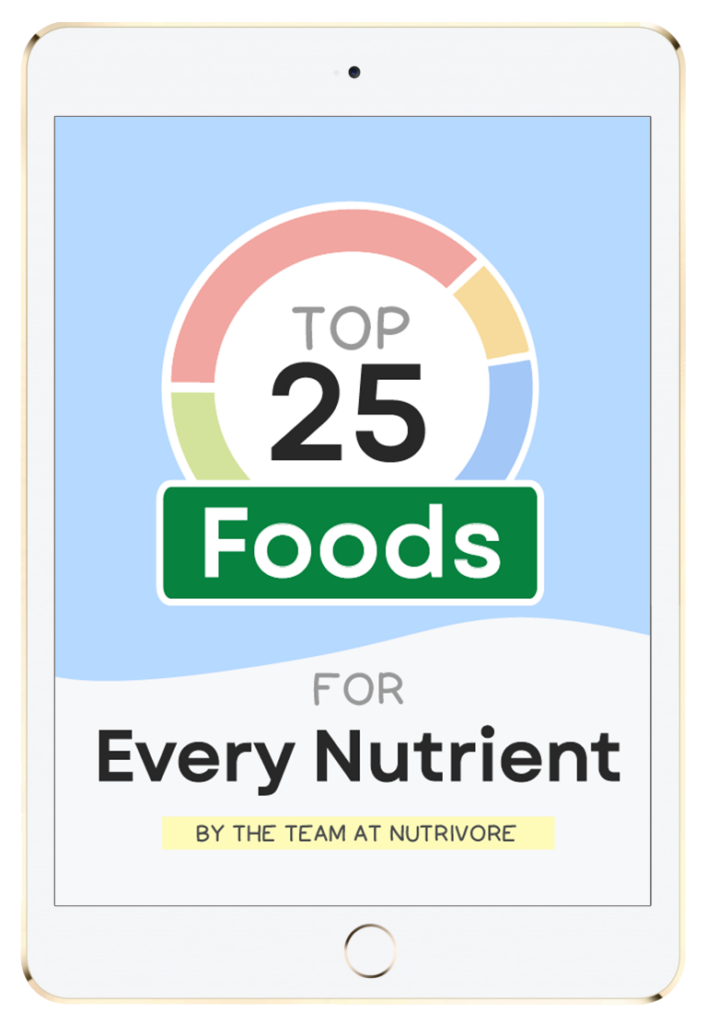
The Top 25 Foods for Every Nutrient
The Top 25 Foods for Every Nutrient e-book is a well-organized, easy-to-use, grocery store-friendly guide to help you choose foods that fit your needs of 43 important nutrients while creating a balanced nutrient-dense diet.
Get two “Top 25” food lists for each nutrient, plus you’ll find RDA charts for everyone, informative visuals, fun facts, serving sizes and the 58 foods that are Nutrient Super Stars!
Buy now for instant digital access.
what are th Problems From Too Much Potassium?
While adequate potassium is clearly necessary for maintaining good health, potassium toxicity—albeit rare—can sometimes occur. Abnormally high levels of potassium in the blood is called hyperkalemia, and happens when the kidneys can’t properly eliminate potassium in response to intake. This results in symptoms like muscle weakness, tingling hands and feet, temporary paralysis, and potentially life-threatening heart issues such as abnormal heart rhythm and cardiac arrest.
Although hyperkalemia rarely occurs in healthy people (due to the kidneys tightly regulating urinary potassium excretion), some medical conditions can increase the risk of it occurring. These include kidney failure, insufficient secretion of the hormone aldosterone (called hypoaldosteronism), tissue damage (such as from severe burns or trauma), or the rupture or destruction of red blood cells (hemolysis). Likewise, combining potassium supplements with certain medications can increase the risk of toxicity: angiotensin converting enzyme (ACE) inhibitors, anticoagulants (especially heparin), some high blood pressure medications (beta-blockers and alpha-blockers), the heart medication digitalis, angiotensin receptor blockers, NSAIDs (especially ibuprofen, ketorolac, and indomethacin), and potassium-sparing diuretics can all potentially increase the risk of hyperkalemia in people taking potassium supplements. And although uncommon, in people who aren’t accustomed to high potassium intakes, taking high-dose potassium supplements (greater than 18 g at once) can potentially cause severe hyperkalemia even if kidney function is normal. For this reason, it’s important to seek the medical advice of your health care provider before taking dietary supplements high in potassium.
Sometimes, even when it doesn’t lead to hyperkalemia, potassium supplementation can cause unpleasant gastrointestinal side effects such as nausea, vomiting, diarrhea, and abdominal discomfort. Same goes for potassium-based salt substitutes (made from potassium chloride). So, while potassium supplements can be useful in certain situations, getting more potassium by eating fruit and vegetables is the safest route for just about anybody!
How Much Potassium Do We Need?
The adequate intake level for potassium is 2,600 mg daily for women and 3,400 mg daily for men. However, higher intakes from whole foods, especially in the context of higher-sodium diets, may be beneficial!
| 0 – 6 months | |||||
| 6 months to < 12 months | |||||
| 1 yr – 3 yrs | |||||
| 4 yrs – 8 yrs | |||||
| 9 yrs – 13 yrs | |||||
| 14 yrs – 18 yrs | |||||
| 19 yrs – 50 yrs | |||||
| 51+ yrs | |||||
| Pregnant (14 – 18 yrs) | |||||
| Pregnant (19 – 30 yrs) | |||||
| Pregnant (31 – 50 yrs) | |||||
| Lactating (14 – 18 yrs) | |||||
| Lactating (19 – 30 yrs) | |||||
| Lactating (31 – 50 yrs) |
Nutrient Daily Values
Nutrition requirements and recommended nutrient intake for infants, children, adolescents, adults, mature adults, and pregnant and lactating individuals.
Ditch Diets. Embrace Nutrients. Start with this FREE Guide.
Sign up for the free Nutrivore Newsletter, your weekly, science-backed guide to improving health through nutrient-rich foods — without dieting harder —and get the Beginner’s Guide to Nutrivore delivered straight to your inbox!

what are the Good Food Sources of Potassium?
The following foods are good sources of potassium, containing at least 10% of the daily value of this awesome mineral per serving.
Want to know the top 500 most nutrient-dense foods?
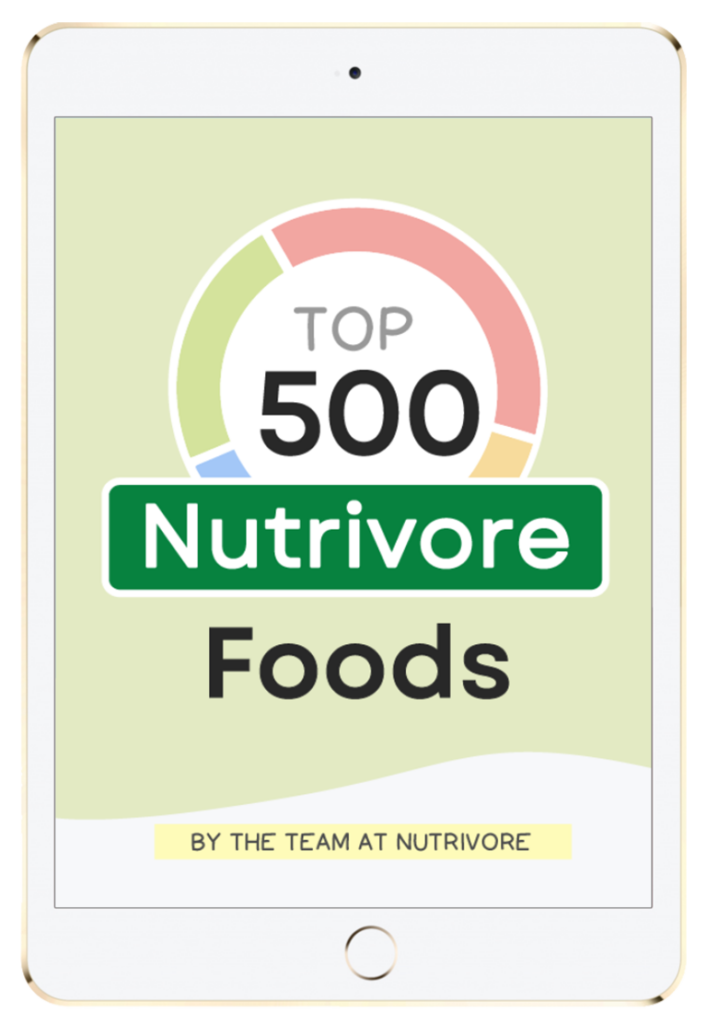
Top 500 Nutrivore Foods
The Top 500 Nutrivore Foods e-book is an amazing reference deck of the top 500 most nutrient-dense foods according to their Nutrivore Score. Think of it as the go-to resource for a super-nerd, to learn more and better understand which foods stand out, and why!
If you are looking for a quick-reference guide to help enhance your diet with nutrients, and dive into the details of your favorite foods, this book is your one-stop-shop!
Buy now for instant digital access.
Citations
Expand to see all scientific references for this article.
Aburto NJ, Hanson S, Gutierrez H, Hooper L, Elliott P, Cappuccio FP. Effect of increased potassium intake on cardiovascular risk factors and disease: systematic review and meta-analyses. BMJ. 2013 Apr 3;346:f1378. doi: 10.1136/bmj.f1378.
Chen YY, Chen YJ. Association between Dietary Calcium and Potassium and Diabetic Retinopathy: A Cross-Sectional Retrospective Study. Nutrients. 2022 Mar 4;14(5):1086. doi: 10.3390/nu14051086.
Dawson-Hughes B, Harris SS, Palermo NJ, Gilhooly CH, Shea MK, Fielding RA, Ceglia L. Potassium Bicarbonate Supplementation Lowers Bone Turnover and Calcium Excretion in Older Men and Women: A Randomized Dose-Finding Trial. J Bone Miner Res. 2015 Nov;30(11):2103-11. doi: 10.1002/jbmr.2554.
Ferraro PM, Mandel EI, Curhan GC, Gambaro G, Taylor EN. Dietary Protein and Potassium, Diet-Dependent Net Acid Load, and Risk of Incident Kidney Stones. Clin J Am Soc Nephrol. 2016 Oct 7;11(10):1834-1844. doi: 10.2215/CJN.01520216.
Filippini T, Violi F, D’Amico R, Vinceti M. The effect of potassium supplementation on blood pressure in hypertensive subjects: A systematic review and meta-analysis. Int J Cardiol. 2017 Mar 1;230:127-135. doi: 10.1016/j.ijcard.2016.12.048.
Filippou CD, Tsioufis CP, Thomopoulos CG, Mihas CC, Dimitriadis KS, Sotiropoulou LI, Chrysochoou CA, Nihoyannopoulos PI, Tousoulis DM. Dietary Approaches to Stop Hypertension (DASH) Diet and Blood Pressure Reduction in Adults with and without Hypertension: A Systematic Review and Meta-Analysis of Randomized Controlled Trials. Adv Nutr. 2020 Sep 1;11(5):1150-1160. doi: 10.1093/advances/nmaa041.
Hayhoe RP, Lentjes MA, Luben RN, Khaw KT, Welch AA. Dietary magnesium and potassium intakes and circulating magnesium are associated with heel bone ultrasound attenuation and osteoporotic fracture risk in the EPIC-Norfolk cohort study. Am J Clin Nutr. 2015 Aug;102(2):376-84. doi: 10.3945/ajcn.114.102723.
Kong SH, Kim JH, Hong AR, Lee JH, Kim SW, Shin CS. Dietary potassium intake is beneficial to bone health in a low calcium intake population: the Korean National Health and Nutrition Examination Survey (KNHANES) (2008-2011). Osteoporos Int. 2017 May;28(5):1577-1585. doi: 10.1007/s00198-017-3908-4.
Lambert H, Frassetto L, Moore JB, Torgerson D, Gannon R, Burckhardt P, Lanham-New S. The effect of supplementation with alkaline potassium salts on bone metabolism: a meta-analysis. Osteoporos Int. 2015 Apr;26(4):1311-8. doi: 10.1007/s00198-014-3006-9.
Lemann J Jr, Pleuss JA, Gray RW. Potassium causes calcium retention in healthy adults. J Nutr. 1993 Sep;123(9):1623-6. doi: 10.1093/jn/123.9.1623.
Mandal AK. Hypokalemia and hyperkalemia. Med Clin North Am. 1997 May;81(3):611-39. doi: 10.1016/s0025-7125(05)70536-8.
Morris RC Jr, Schmidlin O, Tanaka M, Forman A, Frassetto L, Sebastian A. Differing effects of supplemental KCl and KHCO3: pathophysiological and clinical implications. Semin Nephrol. 1999 Sep;19(5):487-93.
Mumoli N, Cei M. Licorice-induced hypokalemia. Int J Cardiol. 2008 Mar 14;124(3):e42-4. doi: 10.1016/j.ijcard.2006.11.190.
Potassium: Fact Sheet for Health Professionals. National Institutes of Health (NIH) Office of Dietary Supplements. 2022 Jun 22.
Sebastian A, Harris ST, Ottaway JH, Todd KM, Morris RC Jr. Improved mineral balance and skeletal metabolism in postmenopausal women treated with potassium bicarbonate. N Engl J Med. 1994 Jun 23;330(25):1776-81. doi: 10.1056/NEJM199406233302502.
Vinceti M, Filippini T, Crippa A, de Sesmaisons A, Wise LA, Orsini N. Meta-Analysis of Potassium Intake and the Risk of Stroke. J Am Heart Assoc. 2016 Oct 6;5(10):e004210. doi: 10.1161/JAHA.116.004210.
Weaver CM. Potassium and health. Adv Nutr. 2013 May 1;4(3):368S-77S. doi: 10.3945/an.112.003533.

Checklists and Planning Tools
Make Nutrivore simple and easy with these handy-dandy planning tools and checklists.



